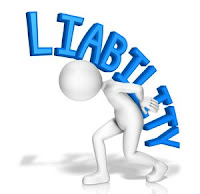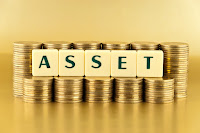 |
| MUTUAL FUNDS |
A mutual fund is a professionally-managed investment scheme, usually run by an asset management company that brings together a group of people and invests their money in stocks, bonds and other securities
 |
| CAPITAL MARKET |
Capital markets are markets for buying and selling equity and debt instruments. Capital markets channel savings and investment between suppliers of capital such as retail investors and institutional investors, and users of capital like businesses, government and individuals. Capital markets are vital to the functioning of an economy, since capital is a critical component for generating economic output. Capital markets include primary markets,
 |
| TRADING |
Trading means the more frequently buying and selling of stocks, commodities, currency
Trading profit are generated through buying at a lower price and selling at a higher price within short term period
 |
| COMMODITY |
A commodity is a basic good used in commerce that is interchangeable with other commodities of the same type; commodities are most often used as inputs in the production of other goods or services. The quality of a given commodity may differ slightly, but it is essentially uniform across producers. When they are traded on an exchange, commodities must also meet specified minimum standards,
 |
| DEBENTURE |
 |
| EQUITY |
Generally speaking, equity is the value of an asset less the amount of all liabilities on that asset. It can be represented with the accounting equation: Assets -Liabilities = Equity.
 |
| LIABILITY |
A liability is a company's financial debt or obligations that arise during the course of its business operations. Liabilities are settled over time through the transfer of economic benefits including money, goods or services. Recorded on the right side of the balance sheet, liabilities include loans, accounts payable, mortgages, deferred revenues and accrued expenses.
 |
| ASSET |
An asset is a resource with economic value that an individual, corporation or country owns or controls with the expectation that it will provide future benefit. Assets are reported on a company's balance sheet, and they are bought or created to increase the value of a firm or benefit the firm's operations. An asset can be thought of as something that in the future can generate cash flow, reduce expenses, improve sales, regardless of whether it's a company's manufacturing equipment or a patent on a particular technology.
 |
| DEBT |
Debt is an amount of money borrowed by one party from another. Debt is used by many corporations and individuals as a method of making large purchases that they could not afford under normal circumstances. A debt arrangement gives the borrowing party permission to borrow money under the condition that it is to be paid back at a later date, usually with interest.
 |
| CREDIT |
Credit is a contractual agreement in which a borrower receives something of value now and agrees to repay the lender at some date in the future, generally with interest. Credit also refers to an accounting entry that either decreases assets or increases liabilities and equity on the company's balance sheet. Additionally, on the company's income statement, a debitreduces net income, while a credit increases net income.










Great points there, thanks. And here is the relevant article, maybe someone will find it useful too https://cgifurniture.com/sales-collateral-for-furniture-businesses-5-pieces-that-sell/
ReplyDelete